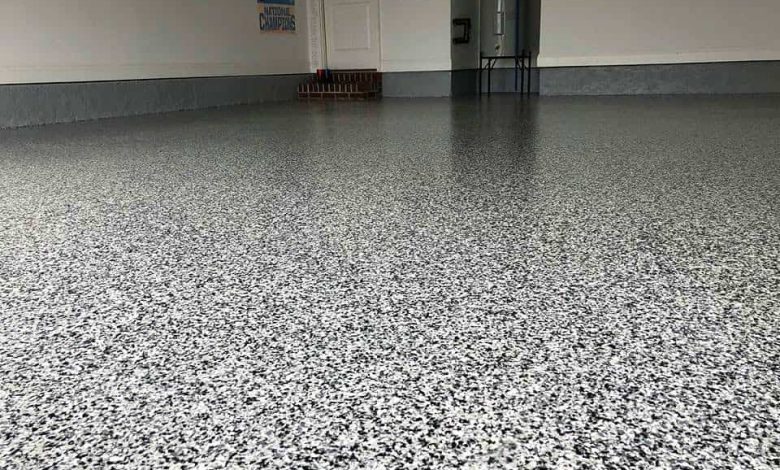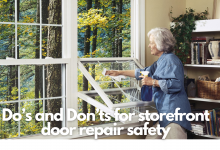Everything You Need to Know About Resinous Flooring

If you are looking for an attractive and durable flooring solution, resinous flooring may be the perfect option for you. Resinous flooring is made up of a resin and hardener that are combined to create a durable finish. This type of flooring is often chosen for busy areas because it is so easy to clean and maintain. In this blog post, we will discuss the basics of resinous flooring so that you can decide if it is the right choice for your business!
Types of Resinous Flooring
Epoxy
Epoxy flooring is a type of resinous or resin flooring that consists of two parts: a resin and a hardener. When mixed together, these two components form a strong, durable surface that is resistant to chemicals, stains, and scratches. Epoxy flooring is often used in commercial and industrial settings because it can withstand heavy foot traffic and equipment. Epoxy floors are also easy to clean and maintain, making them ideal for businesses that require a high level of cleanliness. In addition, epoxy flooring can be customized with logos or other designs, making it an attractive option for businesses that want to make a statement.
Acrylic
Besides, acrylic flooring is also a type of resinous flooring that consists of multiple layers of acrylic resin. The bottom layer is typically a concrete base, while the top layer is a clear acrylic coating. In between these two layers are one or more intermediate layers of acrylic, which help to provide strength and durability. Acrylic flooring is known for its high gloss finish, which can help to reflect light and make a space appear larger. It is also resistant to staining and fading, making it a popular choice for high-traffic areas such as kitchens and bathrooms. However, acrylic floors can be susceptible to scratching and scuffing, so they may not be the best choice for every room in the home.
Polyurethane
After that, polyurethane flooring is third type of resinous flooring that is created by combining a polyol resin with an isocyanate curing agent. This type of flooring is very durable and easy to clean, making it ideal for high traffic areas. Polyurethane flooring is also resistant to staining and fading, and it can be used in both indoor and outdoor applications. One of the main advantages of polyurethane flooring is that it does not require any special cleaners or sealants; however, it should be swept or vacuumed regularly to prevent dirt build-up. Overall, polyurethane flooring is a versatile and low-maintenance option for both residential and commercial settings.
How Long Do Resin Floors Last?
Resin floors are a popular choice for both commercial and industrial settings. They are durable, easy to clean, and slip-resistant, making them ideal for high-traffic areas. But how long do resin floors actually last? The answer depends on a number of factors. The following are some factors that influence how long resinous flooring last:
Traffic exposure
Resinous flooring is a popular choice for high-traffic areas because it is durable and easy to maintain. However, the lifespan of resinous flooring can be affected by traffic exposure. The more traffic an area receives, the more wear and tear the flooring will experience. Over time, this can lead to fading, chipping, and other damage. To help extend the life of your resinous flooring, it is important to choose a product that is designed for high-traffic areas.
Thickness of the resinous coat
The lifespan of resinous floors can vary depending on a number of factors, including the thickness of the resinous coat. Generally speaking, thicker coats will last longer than thinner ones. This is because thicker coats provide better protection against wear and tear, as well as against chemical and UV damage. In addition, thicker coats are less likely to develop cracks or chips, which can lead to premature failure. As a result, specifying a thicker resinous coat is often an effective way to extend the service life of a resinous floor.
Strength of the concrete sub-floor
The lifespan of a resinous floor is determined by many factors, but the strength of the concrete sub-floor is one of the most important. A weak or poorly-constructed sub-floor will not be able to support the weight of the resinous flooring material, and over time, cracks and other damage will begin to appear. In addition, a weak sub-floor is more likely to settle unevenly, which can cause the resinous flooring to become warped or bubbled. On the other hand, a strong and well-built concrete sub-floor will provide a stable foundation for the resinous flooring, and it is less likely to settle over time. As a result, a stronger sub-floor will generally lead to a longer lifespan for the resinous flooring.
Topcoat quality
The quality of the topcoat is also a major factor that determines how long resinous flooring will last. A high-quality topcoat will be more resistant to wear and tear, and it will also provide better protection against stains and other problems. As a result, it is important to choose a topcoat that is designed for the specific type of flooring that you have. In addition, it is important to follow the manufacturer’s instructions carefully in order to ensure that the topcoat is applying correctly. By taking these steps, you can help to extend the life of your resinous flooring.
Sunlight exposure
Sunlight exposure is a factor that influences how long resinous flooring lasts. The ultraviolet (UV) rays in sunlight can break down the bonds between the resin and the aggregate, causing the flooring to become brittle and eventually crumble. UV-resistant additives can help to extend the lifespan of resinous flooring, but ultimately, the best way to protect your investment is to keep it out of direct sunlight. If possible, install shades or awnings over windows and doors, or use blinds or curtains to filter sunlight during the day. You should also avoid using harsh cleaning chemicals that can accelerate the breakdown of the resin. With proper care and maintenance, your resinous flooring can provide years of beauty and durability.
Tips on Resinous Flooring
Maintenance
Resinous flooring is a popular choice for both commercial and industrial settings because it is durable and easy to maintain. However, there are a few things that you can do to help extend the life of your resinous flooring. The following are some tips on resinous flooring maintenance:
Regular cleaning
It is important to sweep or vacuum your resinous floor on a regular basis in order to remove dirt and debris. In addition, you should mop the floor with a mild detergent solution every week or so.
Avoiding harsh cleaners
Harsh cleaners can damage the resinous coating, so it is important to avoid using them on your floor. If you need to remove a tough stain, you should consult the manufacturer of your resinous flooring to find a recommended cleaner.
Protecting the floor from furniture
Furniture can damage resinous floors, so it is important to use furniture pads or coasters in order to protect the surface. In addition, it is important to avoid dragging furniture across the floor, as this can also cause damage.
These are just a few tips on resinous flooring maintenance. By following these tips, you can help to extend the life of your resinous floor.
Final Thought
Resinous flooring is a popular choice for many commercial and industrial settings because it is durable and easy to maintain. However, there are a few things that you can do to help extend the life of your resinous flooring. By following the tips above, you can help to keep your resinous floor looking its best for years to come. Thanks for reading! We hope this article was helpful. If you have any questions or comments, please feel free to reach out to us at comment below.
This article is posted on Jet Posting.



